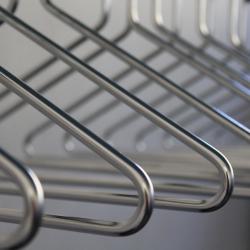Buying in Bulk: When It’s Worth It
In recent years, buying in bulk has become a popular choice for many consumers looking to save money on everyday purchases. From household items to pantry staples, bulk buying offers the promise of significant savings and fewer trips to the store. However, it’s important to recognize that buying in bulk isn’t always the best choice for every item or every household. Understanding when it’s worth it can help consumers make informed decisions that maximize savings and minimize waste.
The Economic Advantage
The primary advantage of buying in bulk is cost savings. Retailers often offer lower per-unit prices for bulk purchases. This can be particularly beneficial for households that have the storage space to accommodate large quantities of frequently used items. For example, buying non-perishable items like toilet paper, laundry detergent, or canned goods in bulk can result in noticeable savings over time.
Shopping at warehouse stores like Costco, Sam’s Club, or BJ’s is a common strategy for those looking to take advantage of bulk purchasing. These stores cater specifically to bulk buyers, offering products in larger sizes and quantities at reduced prices compared to traditional supermarkets.
When Bulk Buying Makes Sense
-
Non-Perishable Goods: Items with a long shelf life, such as pasta, rice, canned foods, and cleaning supplies, are excellent candidates for bulk buying. These products can be stored for months or even years without degrading in quality, ensuring they’re used before they expire.
-
High-Use Household Items: Products that are used daily or frequently, like toilet paper, paper towels, or dish soap, are often worth purchasing in bulk. The convenience of having a steady supply at home can save time and prevent the hassle of frequent store runs.
-
Families and Large Households: Larger households can benefit greatly from buying in bulk due to higher consumption rates. The cost savings can add up quickly when several people share a living space.
-
Business and Institutional Needs: Businesses, schools, and organizations that require large quantities of supplies regularly find bulk buying to be an essential part of their procurement processes, ensuring they get the best prices while keeping stockpiles on hand.
Potential Pitfalls
While the benefits of bulk buying are clear, there are pitfalls that can negate the advantages if not carefully managed.
-
Storage Issues: One major consideration is having adequate storage. Bulk items can take up significant space, and lacking room for them can lead to clutter or even spoilage.
-
Overconsumption and Waste: There is a risk of overconsumption when products are bought in large quantities. Additionally, perishable items purchased in bulk can go bad before they are fully used, resulting in waste and lost money.
-
Initial Expense: The upfront cost of bulk purchases can be a barrier for some, especially if tight budgets are a concern. Despite the long-term savings, not everyone can afford the higher initial outlay.
-
Limited Variety: Buying in bulk often means committing to a specific brand or type of product for an extended period. This can be a drawback if you like to switch brands or if a product you purchase isn't to your liking.
Conclusion
Ultimately, buying in bulk can be a smart financial strategy when done thoughtfully. By focusing on non-perishable items, regularly used products, and household staples, consumers can enjoy the cost benefits while minimizing waste. However, it’s crucial to assess one’s own storage capacity and consumption habits to ensure that bulk purchases are truly advantageous. When balanced effectively, bulk buying can simplify shopping routines, save money, and ensure that essentials are always on hand.






















